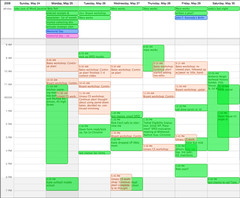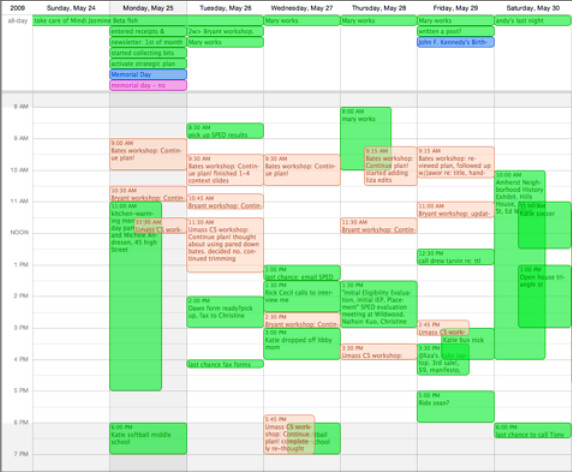Attention Data Hounds: What Personal Data Are You Tracking?
 Monday, June 29, 2009 at 9:08AM
Monday, June 29, 2009 at 9:08AM I'm working on a roadmap for the Personal Informatics movement (you'll find a quick summary of the emerging field below), which I'll post later this week. In the meantime, as readers of my site (i.e. people who actively improve themselves, either via productivity or more generally) I'm sure many of you are already tracking data about yourselves. I would love to know about what personal data you have coming in, and how you use it. (Well, not too personal ;-) The topic is all categories about the human condition, such as health (diet, sleep, mood, medicine), relationships (friends, family, dating), work (I shared a bunch of productivity ones in Micro-Experiments), finances, parenting, and so on.
So please share: What are you tracking? Why? Did you have any insights about yourself? What kinds of changes did you experience? How sure are you that what you did caused the changes? Would you recommend what you tried?
In my case, a few that I've tried include time tracking (Daily Planning and Time Blocking), diet (using a version of The Hacker's Diet), mood, and mental interruptions (during the day I ticked off every time I was drawn off-task).
Happy tracking!
An Incomplete Summary of Personal Informatics
I'll give this a whirlwind treatment, though the topic deserves a better description. Disclaimer: I'm biased. I see tremendous potential here for self-improvement (especially via small steps - it's why I wrote You Did WHAT? 99 Playful Experiments To Live Healthier And Happier), and for leveraging social media to help each other. There are gaps and missed opportunities (next post), but I think this is big.
Briefly, the personal data movement involves recording quantitative information about ourselves with the rough goal being: data collection -> personal insights -> individual behavior change -> collective societal improvements. This is happening now due to an intersection of new tools, mobile technology, and ubiquitous connectivity. Of course people have been tracking things about themselves for ages (as long as there's been writing, I suspect), with a more modern example being Benjamin Franklin's tracking of his virtues during his week.
Surprisingly there's no Wikipedia article for it (though there is one for Omphaloskepsis), so the best starting point is two articles, The New Examined Life and Know Thyself: Tracking Every Facet of Life, from Sleep to Mood to Pain.
For tools and sites, there are too many to mention. I know of two general ones for tracking and visualizing personal data (Mycrocosm and Daytum), one blog (The Quantified Self - know any others?), and a ton of sites that support specific (I'll call them "vertical") areas of life. Following are a few:
- MyMonthlyCycles (menstrual cycles)
- Trixie Tracker (infant feeding schedules)
- Bedpost (sex)
- CureTogether (medical conditions)
- Tweetwhatyoueat (diet)
- Academic Ladder (scholarly writing)
- Nike + iPod (running)
- Happy Factor (happiness)
- Joe's Goals, stickK (habits & goals)
- Mood Tracker (mood)
Question: How would you define this?




